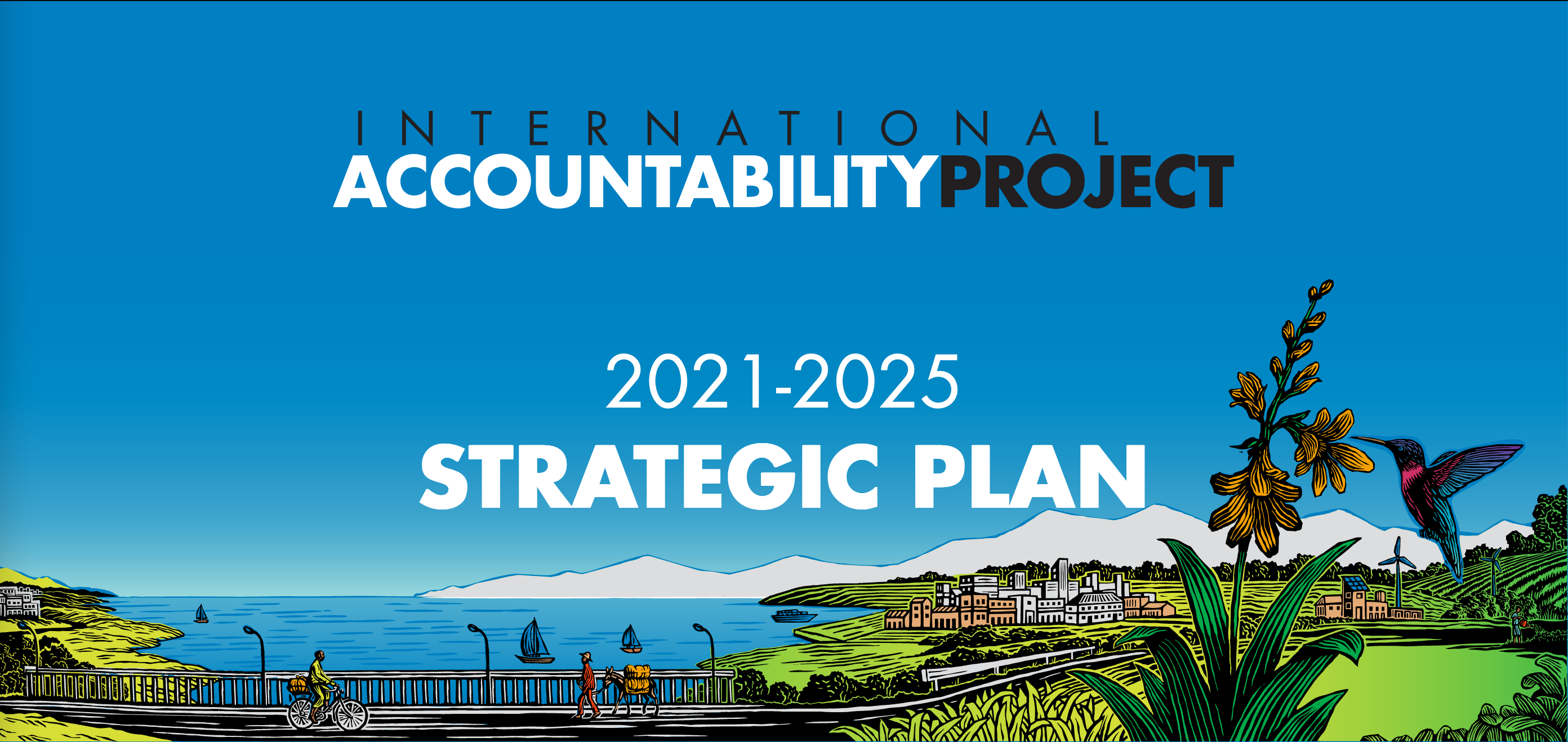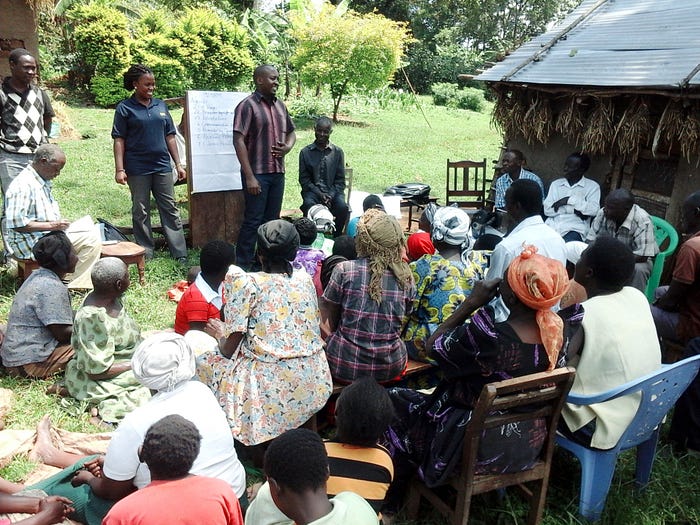
IAP Launches 5-year Strategic Plan for Community-led Development
by Ryan Schlief, Executive Director
For 5 years, IAP has asked, What if development were designed and lived by the same people?
As a 19-year old activist, I remember a mentor asking me what felt, at the time, like an equally provocative question. After participating in repeated protests against a racist and anti-immigrant radio program in the US, I was becoming frustrated that we weren’t able to get the show off the air. My mentor asked, “Everyone knows now what you’re fighting against, but what are you fighting for?”
This question stuck with me.
Like the question from my mentor, IAP’s ‘What if?’ question prompts us to imagine an alternative. For a community member wanting to stop a dam that will flood her home or a government official leading the multimillion-dollar dam project itself: What if you lived in that very community about to be flooded — would you propose the project? What would you propose, if anything?
I feel, over the last 5 years, I personally have asked ‘What if?’ more than a thousand times. I have seen this single question alone bring both hope and regret to many faces. I want to stop asking this question.
What we are fighting for is clearly reflected in IAP’s new vision.

IAP works for a world in which communities lead development where they live, work and play.
In contrast to current practice, IAP advocates for a development process in which people claim and uphold their rights, the environment is respected, and all are able to live with dignity and thrive on the land they love.
Going forward, IAP will still ask What if? but also outline How.
We will do this by reinforcing community organizing. Whether communities campaign for their own development priorities or against a project they don’t want, we will co-create accessible training materials, host in-person and online trainings, and implement collaborative global programs to reinforce the work of community organizers.
Over the past 5 years, IAP has directly supported 25 communities in year-long or multi-year partnerships, which include community-led research. This data, their data, is an important mobilization tool to bring together people under similar priorities and inform their campaigns for the development they want.
For communities hosting their own community-led research, IAP’s 3 training guides on community-led research are available in 9 languages, with more translations on the way.
“IAP’s commitment to redistribute power by empowering communities with information, and advocating for their claiming a seat at the table, is inspiring and critically important for our work in the Arab region.”
Amy Ekdawi, Arab Watch Coalition

IAP believes information from all sides should be exchanged in accessible and transparent ways. Through community-led research, the personal experience and expertise from communities, social movements, and local civil society should be exchanged with and contribute to information held by governments, companies, banks, and investors.
However, development projects regularly do not involve the people likely to be impacted positively or negatively. In the last 5 years, the Early Warning System team summarized and distributed over 12,000 project summaries to over 550 civil society partners. The Early Warning System team collects the newest data about projects, as soon as they are proposed, to give communities and civil society more leverage to engage. Our partners are able to access over 18,000 project summaries and official government and bank documentation in the Early Warning System database.
“We are excited to be part of IAP’s new page on what development should look like. IAP’s work on development agenda has enabled our work in Kenya to thrive and be visible among our grassroot constituency.”
Maurice Ouma Odhiambo, Jamaa Resource Initiative
With detailed data on what project information is released when, in the past 5 years, IAP has led right to information campaigns targeting 7 development finance institutions to improve their transparency in policy and practice.
Looking ahead, IAP will expand both tech innovation and community-led research to re-center accessible data for development within civil society and based on the priorities of communities.
The experience and expertise of communities drive IAP’s advocacy work. We and our partners will reinforce local campaigns toward governments, companies, banks, and investors. In addition to the advice and direct advocacy IAP and our partners conduct with communities, IAP hosts a multi-year program with the brightest community organizers called the Global Advocacy Team.
IAP’s commitment to justice and community-led development has really assisted our work in Chile. We are truly inspired by IAP’s new plans!
Maia Seeger, Sustentarse

The first team’s research resulted in the report, Back to Development: What Development Could Be. This was one of the largest community-led research reports on development — more than 1000 people were involved and over 17,500 copies of the report have been printed or downloaded. The report’s recommendations by 8 community organizers from 8 countries created a platform on which IAP is now working toward realizing community-led development.
With the new strategic plan, the second iteration of the Global Advocacy Team already has brought together dozens of experts and practitioners on community-led development planning to share lessons learned and reinforce collective actions. For the next 3 years, IAP and partners will support 8 community organizers from 8 countries to conduct community-led research to create or improve upon their community-led development plans.
“Congratulations IAP! A thoughtful, collaborative process has led to inspiring new plans. We look forward to supporting communities in Sri Lanka with you as always.”
Tilak Kariyawasam, Sri Lanka Nature Group

This research will power our collective advocacy towards governments, companies, banks and investors to change the existing top-down development model. A report and subsequent training guides will reinforce planning for community-led development globally — moving us from What If? to How.
The overall approach to our work will focus on how we partner with communities and organizations, how we reinforce their activism, how we redistribute power by changing existing systems and supporting community-led models, and finally, how we and the movement transform how development is done.
“IAP is a leader and a team player — your commitments to innovative and collaborative work, drawing on the leadership of communities, makes us all stronger. Congratulations on your new Strategic Plan — looking forward to continuing to work together in solidarity!”
Siddharth Akali, Coalition for Human Rights in Development

We could not have done this alone.
Thank you to the activists and community members who came before us, leading the movement through victories and incredible hardship. We build on your actions and campaigns for justice
Thank you to the communities, social movements, and local organizations who invited us to join their struggles.
Thank you to the more than 170 organizations and community representatives who participated in our surveys and focus group discussions to advise us on our next steps. From these conversations, we learned more about ourselves and our important role in this movement.
Thank you to our staff, board, and donor partners for the courage to take a big ‘What if’ question and collectively design a meaningful response to realize ‘How’.
And, thank you all for joining the next 5 years of IAP.
“IAP is community. This strategic plan takes community to the next level as a source of joy, power, and possibility. I stand in awe of how IAP translates local strategies into global action and always puts people first.”
Kellea Shay Miller, IAP Board Co-Chair
The IAP Strategic Plan 2021–2025 is available in English, Portuguese, Russian, Spanish, Thai and Vietnamese. Let us know what you think by contacting us by email iap (at) accountabilityproject.org or via IAP social media.
